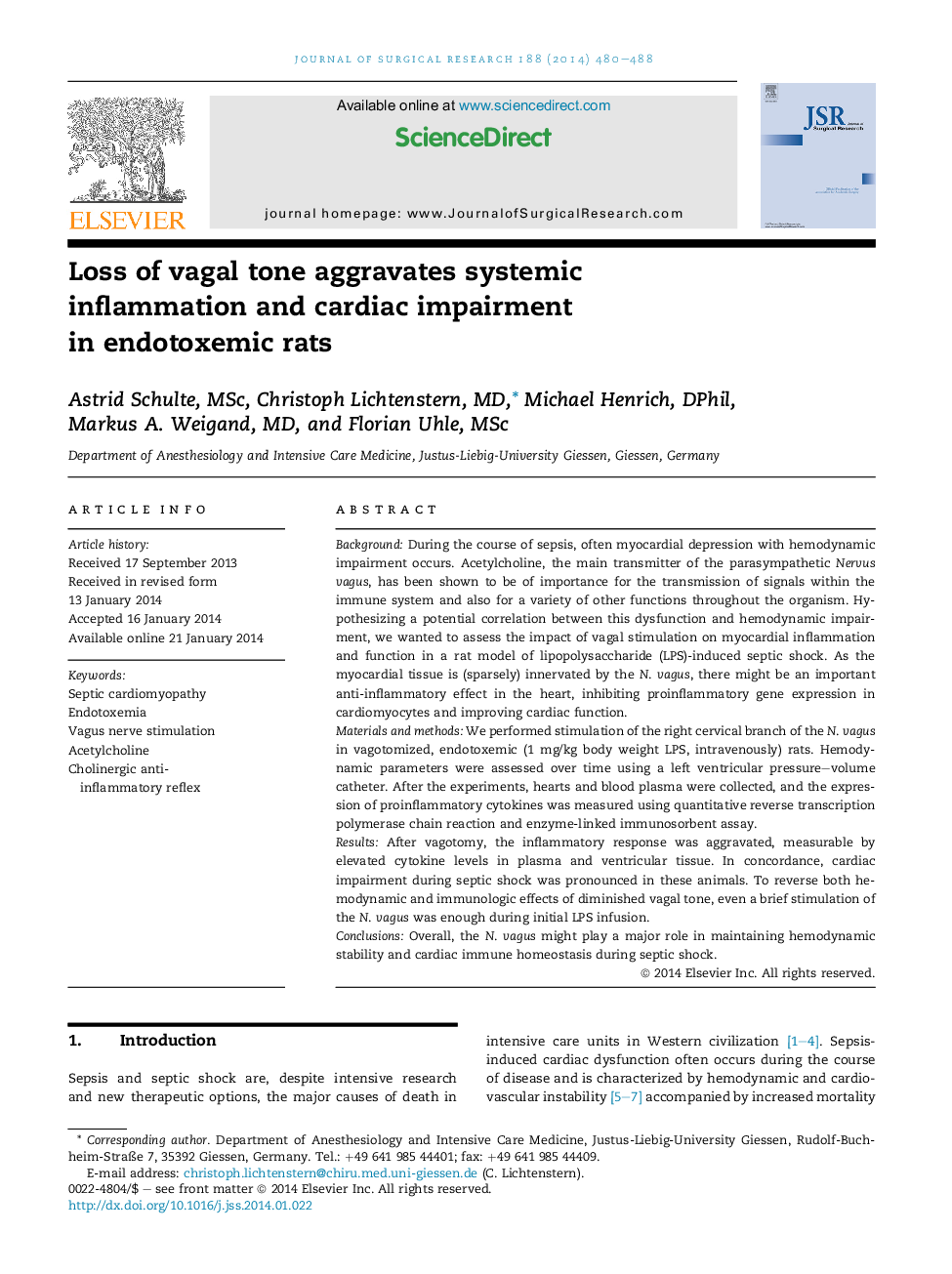| Article ID | Journal | Published Year | Pages | File Type |
|---|---|---|---|---|
| 6254047 | Journal of Surgical Research | 2014 | 9 Pages |
BackgroundDuring the course of sepsis, often myocardial depression with hemodynamic impairment occurs. Acetylcholine, the main transmitter of the parasympathetic Nervus vagus, has been shown to be of importance for the transmission of signals within the immune system and also for a variety of other functions throughout the organism. Hypothesizing a potential correlation between this dysfunction and hemodynamic impairment, we wanted to assess the impact of vagal stimulation on myocardial inflammation and function in a rat model of lipopolysaccharide (LPS)-induced septic shock. As the myocardial tissue is (sparsely) innervated by the N. vagus, there might be an important anti-inflammatory effect in the heart, inhibiting proinflammatory gene expression in cardiomyocytes and improving cardiac function.Materials and methodsWe performed stimulation of the right cervical branch of the N. vagus in vagotomized, endotoxemic (1Â mg/kg body weight LPS, intravenously) rats. Hemodynamic parameters were assessed over time using a left ventricular pressure-volume catheter. After the experiments, hearts and blood plasma were collected, and the expression of proinflammatory cytokines was measured using quantitative reverse transcription polymerase chain reaction and enzyme-linked immunosorbent assay.ResultsAfter vagotomy, the inflammatory response was aggravated, measurable by elevated cytokine levels in plasma and ventricular tissue. In concordance, cardiac impairment during septic shock was pronounced in these animals. To reverse both hemodynamic and immunologic effects of diminished vagal tone, even a brief stimulation of the N. vagus was enough during initial LPS infusion.ConclusionsOverall, the N. vagus might play a major role in maintaining hemodynamic stability and cardiac immune homeostasis during septic shock.
